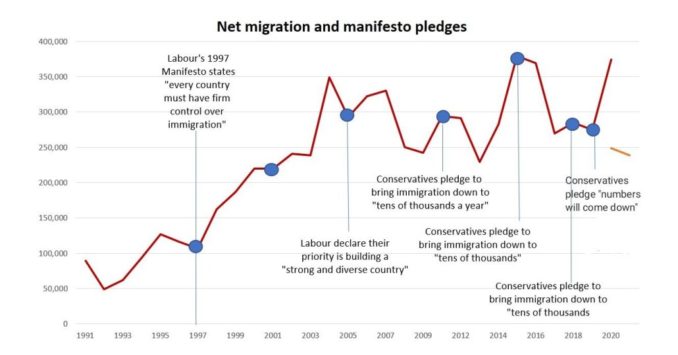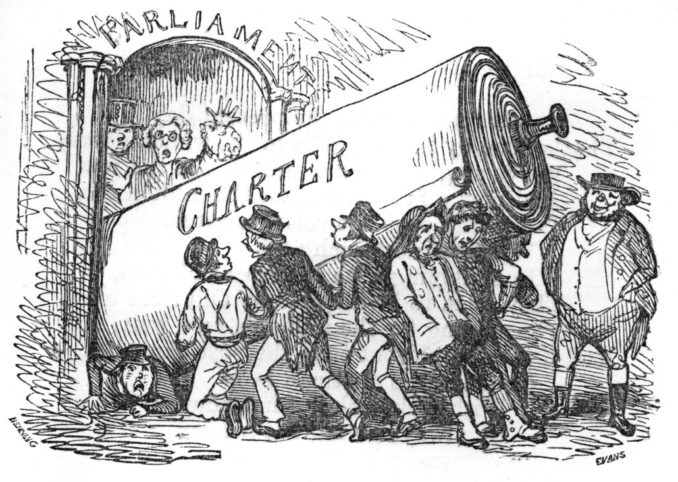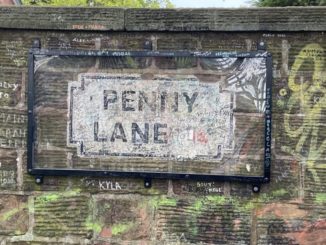It’s standard practice when a making a complaint that one:
- articulates the complaint to the appropriate person in writing
- says what would resolve the complaint i.e. what you want them to do
Why should it be any different between the people and our King?
There has been much wailing and gnashing of teeth because King Charles has had the temerity to listen to his recently elected Prime Minister, the chair of the National Police Chiefs’ Council, his establishment advisers and, I daresay, the MSM and (the horror) thanked them for doing their jobs. Seriously, what did you expect? Has it occurred to you that it’s part of his job description? Or that they might have asked him to say something “to stabilise the country” and then some people spun it as “political interference” knowing it would damage perceptions of the monarchy? Doesn’t undermining the monarchy make it easier for anyone wishing to destroy Great Britain, its history, culture and institutions? Do you really think the sort of establishment media manipulation we’ve seen during the recent civil unrest isn’t used on the King too?
Has anyone even bothered to offer the King an alternative point of view? To articulate clearly the people’s legitimate concerns to him? Of course not. He’s just supposed to “know”. How exactly? Telepathy? Hanging out on X (formerly Twitter)? Reading the comments? He’s a busy man with family problems recovering from a severe illness. When does he have the time?
Doesn’t it ever occur to you that our King is carefully cocooned from the daily life of his people? That being so cocooned he is even less likely to have experienced “an awakening” than the most ardent, brainwashed BBC junkie? Stockholm syndrome might even spring to mind. Or that leaders don’t often escape from their bubble and when they do encounter the public, it’s all carefully stage-managed to send “the right message”? Just look what happened when Gillian Duffy went off script with Gordon Brown, if you don’t believe me. So, is it fair to criticise the King for lack of awareness?
Royal prerogative powers
I think not, especially – and this will doubtless upset the anti-monarchists – because our King is the only person at this stage who could actually help us. How? He has royal prerogative powers which he could use single-handedly to dissolve Parliament or withhold Royal Assent. Look it up. A.V. Dicey, British jurist and constitutional theorist (1835–1922), believed that the monarch could dissolve Parliament if:
“an occasion has arisen on which there is fair reason to suppose that the opinion of the House is not the opinion of the electors … A dissolution is allowable, or necessary, whenever the wishes of the legislature are, or may fairly be presumed to be, different from the wishes of the nation.” (Barnett, 2009, p207)
It applies today. The royal prerogative to dissolve Parliament, which had been abrogated by the Fixed Term Parliaments Act 2011, was revived by the Dissolution and Calling of Parliament Act 2022. Technically the monarch may appoint as prime minister anyone he wants to appoint. Perhaps there’s a reason our constitution isn’t taught in schools?
No monarch has withheld Royal Assent since Queen Anne in 1708 – although George III and George IV both threatened to use the Royal Veto between 1800 and 1829 – so King Charles III would need compelling reasons. But what could be more compelling than the fact that Parliament, when it’s not on holiday, is unfit for purpose?
As evidence I submit that for the last 40 years, governments of ALL political persuasions – Labour, Conservative and Conservative-LibDem coalition – have been elected on their promise to control migration but once in power have done precisely the opposite. We have been repeatedly lied to and ignored, from Tony Blair’s “every country must have firm control over immigration” while opening our borders, to David Cameron’s pledge to bring net migration back to tens of thousands a year, to Theresa May signing up to the UN Compact for Migration without debate, to Boris Johnson’s proposed amnesties and immigration schemes, to Rishi Sunak’s Rwanda flights that never took off, to the dinghies that never, ever stop coming.

Open Government Licence v1.0
The evidence is all around us that representative democracy is broken and Parliament has not been fit for purpose for some time. No wonder decent, law-abiding, hard-working people are saying #EnoughIsEnough. The mere fact that the British and Irish Nationalist flags were recently displayed together in unity in Northern Ireland shows how deep the grievance goes, no matter how inchoate its expression has been to date.
Our politicians and establishment figures have inflamed things, queuing up to signal their virtue and invoking that useful bogeyman, the “Far Right”, which these days appears to mean most of the country, thus suppressing legitimate concerns. The “show trials”, threats of prosecution for social media posts and “two-tier” sentencing censor free speech and suppress dissent. Neither this Parliament nor another election can get us out of this mess: how can they when they’re part of the problem? So, isn’t the onus on we the people to explain our grievance as we see it to the highest authority in the land, our King?
The pen is mightier than the sword
Petitions developed during Anglo-Saxon and medieval times as a routine means of initiating requests and resolving problems with people in authority. In 1628, Parliament issued the Petition of Right to redress its grievances against King Charles I. Petitioning as a radical tactic of experience-led, bottom-up political thinking dates back to the civil wars of the 1640s. The unrepealed English Bill of Rights which received Royal Assent in 1689 reasserted our ancient constitutional right to petition saying:
“It is the right of the subjects to petition the King, and all commitments and prosecutions for such petitioning are illegal.”
Scotland’s pre-Union Claim of Right made a similar reassertion. No wonder some call for a new Bill of Rights.
Petitions became more numerous in the 1770s and 1780s while the practice of receiving them became more restrictive. Large-scale petitioning campaigns, first against the slave trade and then against the economic blockade of continental Europe, mobilised middle- and working-class opinion. In 1775, the Olive Branch Petition from our American cousins, written by John Dickinson, appealed directly to King George III. Attempting to notify him that American colonists were unhappy with ministerial policy, not his own, it expressed hope for reconciliation between the colonies and Great Britain. The King George refused to accept that petition… and we all know what happened next.
The national petitioning campaign for parliamentary reform in 1816-17 was the biggest such movement before Chartism. In Petitioners and Rebels, Robert Poole makes the point that:
“… petitioning and rebellion were mutually dependent strategies for obtaining parliamentary reform: petitioning depended upon the threat of rebellion for its effectiveness, while rebellion depended upon petitioning for its legitimacy.” (p. 574)
Both strategies drew on constitutional precedents. William Cobbett, the English radical pamphleteer, journalist, politician and Surrey-born farmer, urged his readers in a mass-circulation Address to Journeymen and Labourers published in early November 1816 to promote reform:
“Petition is the channel for your sentiments, and there is no village so small that its petition would not have some weight. You ought to attend at every public meeting within your reach. You ought to read to, and assist each other in coming at a competent knowledge of all public matters. Above all things, you ought to be unanimous in your object, and not to suffer yourselves to be divided.” (ibid, p. 559)
The rejection of hundreds of petitions by Parliament gave legitimacy to the remonstrance and resistance which led to the largest ever political gathering of working class people at Peterloo in 1819 to hear the English radical reformers Samuel Bamford, weaver, and Henry ‘Orator’ Hunt speak. Their campaign sought not to petition Parliament but to “remonstrate” directly with the Crown for the dismissal of the government. They identified the root cause as a monopoly of political power by a self-interested elite and the root remedy as parliamentary reform. Ultimately, their dual strategy paid off when the Whigs successfully deployed the threat of rebellion to force through the 1832 Great Reform Act.
Chartism (1838-57) was a working-class movement for political reform that took its name from the People’s Charter of 1838 and was a precursor of the Trades Unions movement. Chartism was a national protest movement, with particular strongholds of support in Northern England, the East Midlands, the Staffordshire Potteries, the Black Country and the South Wales Valleys, where working people depended on single industries and were subject to wild swings in economic activity. It relied on constitutional methods to secure its aims. Petitions signed by millions of working people were presented to the House of Commons and accompanying mass meetings put pressure on politicians to concede to their six reforms to make the political system more democratic. The Chartists achieved all but one of their aims.

Alamy (licensed D86928-2)
A peaceful pathway to change
We can learn from our history and have precedent on our side. Even in these days of media manipulation, it’s harder to distort or suppress something when it’s circulated for everyone to read. It might even spark some genuine debate amongst the inevitable backlash. That is why the only peaceful pathway I can see today is to set out our grievance in a petition to our King and ask him to suspend Parliament so that we the people – not just politicians or commentariat gatekeepers – have time to do some inductive reasoning and find a workable solution for the good of each other and the country. But we have to speak together in one unified, loud, clear voice. Who knows, some politicians might even be relieved?
Fortunately, there is a cross-party organisation called, unsurprisingly, Petition The King, that petitions the monarch on specific issues, most recently the WHO Pandemic Treaty. Has anyone asked them to help? No, I thought not.
That carefully worded letter of complaint or “petition” to the King would need to be supported in HUGE numbers before he could legitimately invoke prerogative powers and avoid accusations of attempting to “overthrow democracy”. We might even need to SHOW him how many support the petition by peaceful protest which our elected Prime Minister, Kier Starmer, has recently acknowledged is our right by allowing the “counter-protests” to take place – but not in Parliament Square for Parliament does seem to be the problem. Perhaps somewhere like, oh, I don’t know, outside his Royal residences with some homemade placards to reinforce the message. Then our King could look out of his window and see the evidence of his own eyes. That might tell him something.
There are other advantages to assembling at such locations, not least that the King and his residences are protected by seven army divisions called The King’s Guard. It would be a massive PR fail if a peaceful, historic petition by the people to their King was met by riot police outside Buck House. The images would flash around the world. With the King’s Guard in charge there should be no need for face coverings or hostility. It goes without saying that EVERYONE would have to be on their best behaviour and watch out for agents provocateurs, especially those whose job is keeping the public safe and secure. Let’s face it, when making a complaint, you’re more likely to get a good result if you ask politely (especially if the alternative is “civil war” as Elon Musk recently speculated).
It might even capture the attention of the world. Other countries are fascinated by our Royal Family, pageantry and eccentric, arcane ways. What could be more historic than the British people exercising their ancient right to petition their King to use his ancient prerogative Powers to help them? And wouldn’t both history and the spotlight of publicity make the King think very carefully about his response? People power can work. When the East German civil rights movement started the so-called “Peaceful Revolution” in Leipzig crying “Wir sind das Volk/We are the people”, it led to the fall of the Berlin Wall and the end of the communist Deutsche Demokratische Republik.

Photographer: Roland Blunck (licensed from iStock)
This King is unique
Anti-monarchists will shoot this idea down immediately saying “Oh, he’s one of THEM” – but they would say that, wouldn’t they? The last thing they want is a British monarchy that has demonstrated its true purpose and cemented its future. But that is exactly what the King would want if he has any sense – and I think he does.
I’ll go further: I think THIS King is uniquely able to respond to such a complaint. We already know from The Princes’ Trust and his support for heritage crafts and culture that he’s kind, well-meaning and wants to help, especially young people. It’s fair to say that excessive immigration damages the prospects of our young people. King Charles III was an early adopter of organic farming so he has vision. He will be 76 on November 14th and you can see from this photo how much his recent illness has affected him. Like many of the older protestors, he has a lot less to lose than, say, a young King starting out.
So, there are the precedents and my suggestion. Petition the King formally and respectfully to suspend Parliament due to exceptional circumstances, explain our grievance and supply evidence for our complaint. Peacefully show him how many support that petition. Make no mistake, it’s a big ask. Huge. It won’t be easy to get off the ground and there’s no guarantee of success. But I would argue there is no other constructive and peaceful alternative when representative democracy has failed to deliver so spectacularly for decades. And if it succeeds, the gains could be HUGE; the Royal Veto could halt the progress of Net Zero and the Pandemic Treaty too.
You may say I’m a dreamer, but I’m not the only one. Our history shows that many, many others before me have used a dream, an idea, to inspire real progress, real change and bring about a better future.
See you in the unread comments.
© Twinkle 2024



